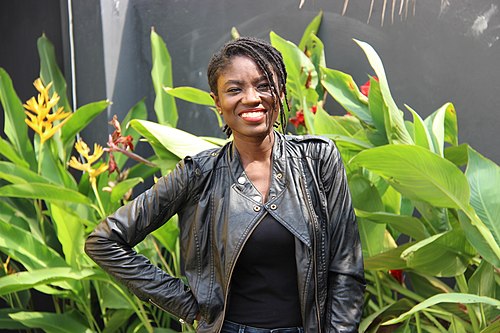 Article display preview: Article display preview: | This is a draft of a potential Signpost article, and should not be interpreted as a finished piece. Its content is subject to review by the editorial team and ultimately by JPxG, the editor in chief. Please do not link to this draft as it is unfinished and the URL will change upon publication. If you would like to contribute and are familiar with the requirements of a Signpost article, feel free to be bold in making improvements!
| ||||
Speaking of Planning ...
The WMF planning process is underway
The facts
[edit]The WMF has opened a discussion for the 2026-2027 annual plan. All are welcome to participate. STei opened the conversation with a series of prompts focused on global trends. This section includes a similar discussion about our evolving relationship to AI as seen in Schiste's wake up call. Others lamented missed opportunities while highlighting the community's need to create (rather than generate) non-text media. Of course, politics could not be ignored. Some participants highlighted an increasingly tense political landscape. This discussion largely overlapped with debate on what steps the WMF should take to reduce its reliance on the United States as a legal system and place to operate. The second half of the discussion was initiated with prompts from other users. At the time of writing, the Global Trends and "Reduce US focus" sections were the third and second largest.
Leading the discussion was newcomer growth. Did you know you can edit Wikipedia? Well if you read The Signpost the answer is probably yes, but studies show that you probably know someone that is unaware they are allowed to edit Wikipedia. Users discussed how to address this. Regular readers who keep up at the Village Pump will not be surprised that the WMF and community discussed the woes of mobile editing impacting newcomers' understanding that Wikimedia wants you to edit. Who should the mobile editing experience target? Is the newcomer experience getting easier or harder over time? The WMF wants your thoughts.
In 2026, the WMF wants to experiment and try new things. However, community discussion about past experiments focused on failures such as Charts and other tools that were rolled out without promotion, explanation, or support. Not everything was bluster and gloom, there appears to be some alignment between the WMF and community on development of tools to check edits for LLM generation and other issues. How to roll these into a full fledged feature on enWiki remains an open question.
Commentary
[edit]Of course it would not be Meta without some meta-commentary. Some users expressed doubt about the utility of a discussion period. How do we know the foundation takes these comments seriously? KStineRowe says the WMF is already demonstrating[1] how discussion influenced last year's plan. The WMF statements highlight how last year's comments helped motivate the WMF to continue making mobile editing more user friendly and focus more on mobile technology issues through their Product and Technology Advisory Council. That discussion saw mobile mentioned in ten comments four of which were not by WMF staff. For scale, edit was found 439 times on the page. TikTok was found twice as much as mobile. Word frequency comparison shows this year's in progress discussion places less emphasis on AI and information with more emphasis on mobile and ideas.
Interview
[edit]Three discussion participants interviewed by the Signpost found the WMF staff to be responsive and encourage others to join the conversation. They were motivated to share their thoughts regarding development of a smoother onboarding experience while retaining existing editors.





Discuss this story